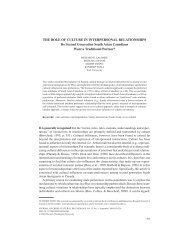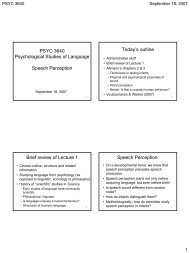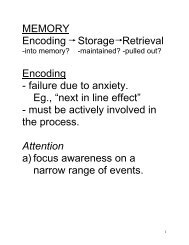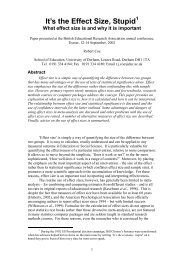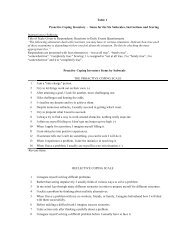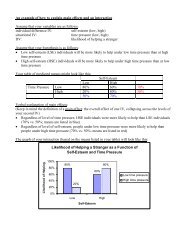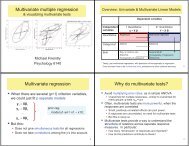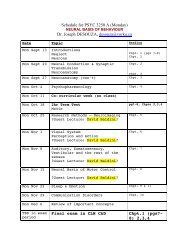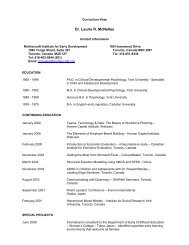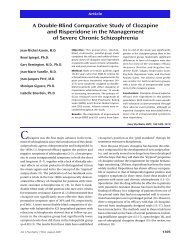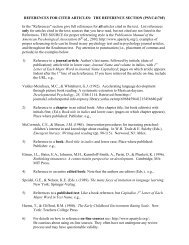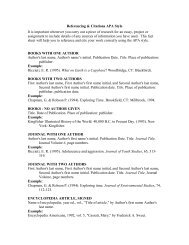The Drama of the Gifted Child (The Search for the True Self)
The Drama of the Gifted Child (The Search for the True Self)
The Drama of the Gifted Child (The Search for the True Self)
You also want an ePaper? Increase the reach of your titles
YUMPU automatically turns print PDFs into web optimized ePapers that Google loves.
cepts without question thoughts and actions that, in himself,<br />
he would consider mean or bad when measured against<br />
his high ego ideal. O<strong>the</strong>rs are allowed to be "ordinary," but<br />
that he can never be.<br />
Although <strong>the</strong> outward picture <strong>of</strong> depression is quite <strong>the</strong><br />
opposite <strong>of</strong> that <strong>of</strong> grandiosity and has a quality that expresses<br />
<strong>the</strong> tragedy <strong>of</strong> <strong>the</strong> loss <strong>of</strong> self to a great extent, <strong>the</strong>y<br />
have <strong>the</strong> same roots in <strong>the</strong> narcissistic disturbance. Both are<br />
indications <strong>of</strong> an inner prison, because <strong>the</strong> grandiose and <strong>the</strong><br />
depressive individuals are compelled to fulfill <strong>the</strong> introjected<br />
mo<strong>the</strong>r's expectations: whereas <strong>the</strong> grandiose person<br />
is her successful child, <strong>the</strong> depressive sees himself as a<br />
failure.<br />
<strong>The</strong>y have many points in common:<br />
• A "false self" that has led to <strong>the</strong> loss <strong>of</strong> <strong>the</strong> potential<br />
"true self"<br />
• A fragility <strong>of</strong> self-esteem that is based on <strong>the</strong> possibility<br />
<strong>of</strong> realizing <strong>the</strong> "false self" because <strong>of</strong> lack <strong>of</strong> confidence<br />
in one's own feelings and wishes<br />
• Perfectionism, a very high ego ideal<br />
• Denial <strong>of</strong> <strong>the</strong> rejected feelings (<strong>the</strong> missing <strong>of</strong> a shadow in<br />
<strong>the</strong> reflected image <strong>of</strong> Narcissus)<br />
• A preponderance <strong>of</strong> narcissistic ca<strong>the</strong>xes <strong>of</strong> objects<br />
• An enormous fear <strong>of</strong> loss <strong>of</strong> love and <strong>the</strong>re<strong>for</strong>e a great<br />
readiness to con<strong>for</strong>m<br />
• Envy <strong>of</strong> <strong>the</strong> healthy<br />
• Strong aggression that is split <strong>of</strong>f and <strong>the</strong>re<strong>for</strong>e not<br />
neutralized<br />
• Oversensitivity<br />
• A readiness to feel shame and guilt<br />
• Restlessness<br />
Thus depression can be understood as a sign <strong>of</strong> <strong>the</strong> loss<br />
<strong>of</strong> <strong>the</strong> self and consists <strong>of</strong> a denial <strong>of</strong> one's own emotional<br />
reactions and feelings. This denial begins in <strong>the</strong> service <strong>of</strong><br />
45



